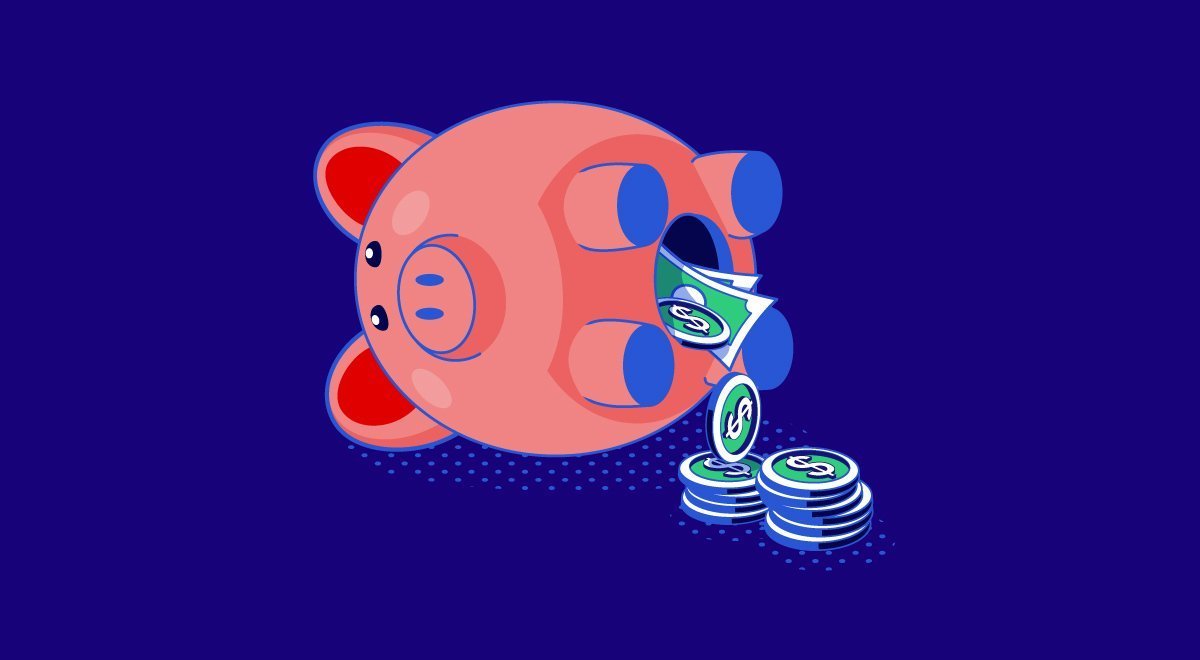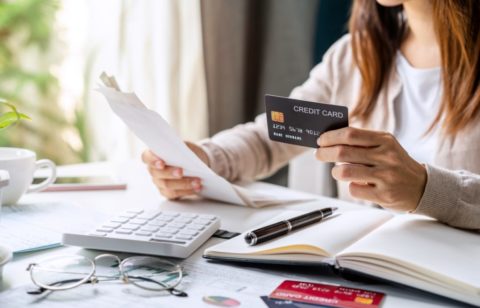The average millennial household now carries almost $28,000 in non-mortgage debt. Older and younger Americans aren’t too far behind when it comes to debt, either. Paying those kinds of debts off can seem insurmountable at first, especially if you have to do it a few hundred dollars at a time. In many cases, it may be difficult to keep up with the interest expenses you’re incurring each month. One option people with high levels of debt increasingly turn to is debt consolidation. Even if you have poor credit, debt consolidation can be an effective means to get your credit cards and other debts under control. Take a closer look at debt consolidation, so you can see whether it would be a good choice for your financial situation.
How Debt Consolidation with Poor Credit Works
With debt consolidation, the balances on all your outstanding debts, such as store and credit cards, are combined, typically into either a new loan or a balance transfer credit card. This consolidated debt typically has a lower interest rate and longer payback horizon than your previously outstanding credit cards, personal loans, and other old debts. This means that you’ll typically have a lower monthly payment, so repaying your debts will be more manageable relative to your other expenses. You’ll also accrue fewer interest expenses each month. All these factors will make it easier to pay off all your debts slowly but steadily. Finally, instead of having several credit card and debt bills to deal with each month, you’ll just have to deal with a single loan payment, which is another added benefit of debt consolidation.
Drawbacks to Debt Consolidation with Poor Credit
There are some disadvantages to using debt consolidation to address your outstanding credit cards and other debts, however. For example, if you use a secured loan to consolidate your debt, such as your home or car, the lender could seize those assets if you default on the loan. Additionally, while a debt consolidation loan often streamlines and lowers your payments, the longer payback horizon means you’ll stay in debt far longer than if you’d chosen some other way to deal with your outstanding debt, such as just buckling down and attempting to pay your existing debts on your own by bootstrapping it.
Debt consolidation may make your debts more manageable, but it doesn’t address the root causes of why you ended up in debt in the first place. If you have trouble managing your money or you spend too much, debt consolidation alone won’t help you. In fact, you could end with higher levels of debt than you had when you took out your loan. If managing your finances is something you find challenging, it may make more sense to focus on budgeting your money more effectively or talk to a nonprofit credit counselor to get your debt under control.
Debt Consolidation, Poor Credit: Secured Loans, Balance Transfers, and Debt Settlement
In the past, it was often difficult to use debt consolidation with poor credit, since many financial service companies and lenders are hesitant to consolidate the debt of people they believe will have problems making payments. Fortunately, there are some more options for people with less-than-stellar credit to use debt consolidation. While bad credit makes everything more challenging when it comes to addressing debt, there are still ways to combine all your outstanding debts to make them easier to handle.
If you have poor credit, one option you may want to consider is a secured debt consolidation loan. As discussed previously, a secured debt consolidation loan will use a valuable asset that you own, such as your home or car, as collateral, to secure the loan. The collateral makes the loan less risky to the lender since the lender knows that you have an asset that’s worth at least the value of the loan, if not more. In many cases, a borrower may be able to gain approval for a secured loan even if his or her credit isn’t great. However, taking one of these loans puts your assets at risk, so if you’re concerned about being able to pay back the loan, you may want to consider other options.
Another choice borrowers can consider is a balance transfer credit card. With a balance transfer, you move all the debt for one or more of your credit cards to a new one, usually with a much lower interest rate and other favorable terms. Using balance transfers is essentially a form of debt consolidation for credit cards. One of the advantages of balance transfers is that, unlike traditional bank loans, they’re often available for borrowers with poor credit. However, before you sign up for a new credit card for a balance transfer, ensure you check the terms. In many cases, the introductory rates offered on the card can be raised, which could end up making your monthly payments even higher.
Debt settlement, the process by which a debt settlement company negotiates down a borrower’s debts, is often considered a form of debt consolidation. Debt settlement services can be a great choice for borrowers with poor credit who are still earning a solid income, but feel that their current level of debt is overwhelming and beyond their capacity to repay. By assuming oversight of all of a borrower’s debts and working directly with credit card companies and other creditors, debt settlement companies can often get people on the path to being debt-free. Having a debt settlement professional dealing with your creditors can help reduce some of that financial stress you’re feeling, too.
Debt Consolidation with Poor Credit: Another Tool for Becoming Debt-free
Debt consolidation has helped many Americans get their debts under control so they can start paying them down more efficiently. The process can make managing all your credit bills easier, too. Debt consolidation with poor credit is possible, thanks to secured loans and balance transfer credit cards. However, debt consolidation isn’t a good choice for everyone; in some cases, it could make your debt problems worse. So, if you’re trying to get out of debt, talk to a trusted financial advisor and find out if debt consolidation will work for you.





